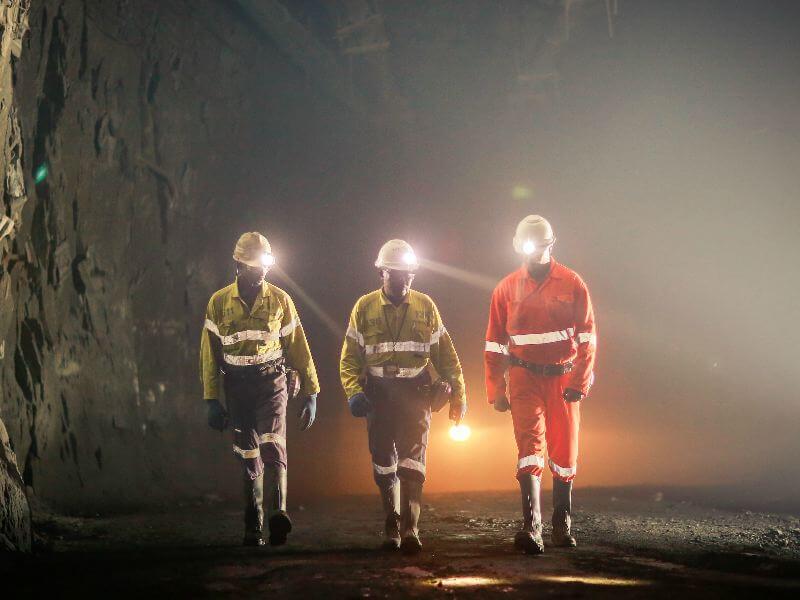Electrical system ground fault protection is a vital aspect of ensuring the safety of employees and maintaining reliable operation based on the loads they serve. While three-phase or arcing faults often receive significant attention, ground faults are more common. They can pose a greater risk to personnel and equipment. Grounding, bonding, and ground fault protection are crucial in reducing shock hazards during a ground fault, especially when a current-carrying conductor's insulation fails or unintentionally faults to the ground.
Reliable System Operation with Ground Fault Protection
Ground fault protection allows electrical systems to be maintained reliably, matching the needs and loads they serve while promptly and selectively isolating undesirable conditions. It ensures that the system can respond quickly and effectively to mitigate potential harm in the event of a fault.

Understanding Ground Fault Protection
It's important to note that ground fault protection for specific equipment, such as generators, transformers, or motors, is a complex subject that warrants in-depth discussion beyond the scope of this article. However, for this discussion, we will focus primarily on coordinating the distribution of protective devices.
What is a Ground Fault?
A ground fault occurs when a conductor at a voltage other than the base voltage comes into contact with another conductive material connected to the ground. The consequences of a ground fault depend on the type of grounding system in place. They can include transient or sustained overvoltages, under voltages, and undesirable single-line-to-ground fault currents. If these faults are not isolated, they can pose risks to personnel, cause damage to systems, or even escalate into more severe issues.
The Role of an Effective Ground-Fault Current Path
The primary purpose of an effective ground-fault current path is to keep noncurrent-carrying conductive materials as close to the system ground potential as possible. It provides a safe pathway for ground-fault current in the event of a fault, ensuring that the current is appropriately directed and minimizing potential harm.

GET IN TOUCH
Contact Our Experts
Types of System Grounding
Different types of system grounding are practiced in the industry, including solidly grounded systems, impedance-grounded systems, and ungrounded systems. Each has its advantages and considerations.
- Ungrounded Systems: Ungrounded systems operate without a connection to earth ground and offer advantages such as low line-to-line ground fault current, no flash hazard for personnel, and the ability to continue operation during the first occurrence of a line-to-ground fault. However, these systems can present challenges in locating line-to-ground faults, increase risks during maintenance, and provide limited control over transient overvoltage.
- Grounded Systems: Grounded systems offer numerous benefits, including solidly grounded and impedance grounded systems. They provide a common reference point, improved safety, better protection for equipment, easier detection of ground fault locations, enhanced avoidance of electrostatic accidents, and better control of transient overvoltages.
- Solidly Grounded Systems: Electrical systems have a grounded conductor connected directly to the earth's ground without any intentionally added impedance. They are the most standard type of grounding system and offer advantages such as reduced magnitudes of transient overvoltages and a lower potential for electrical shock. However, they may have higher ground fault currents, leading to increased equipment damage and an elevated risk of arc flash incidents.
Ensuring Adequate Ground Fault Protection
In conclusion, ground fault protection is critical to designing and operating electrical systems. It ensures the safety of personnel and equipment while maintaining system reliability. Understanding the different types of grounding systems and adhering to relevant codes and standards is essential for implementing proper ground fault protection measures. By prioritizing ground fault protection, we can minimize risks, enhance system performance, and create a safer electrical environment for everyone involved.

Revolutionize Your Mining Operations
Are you looking for reliable ground fault protection solutions for your mining operations? Look no further than Becker Mining USA. With our expertise in mining electrical systems, we specialize in providing advanced ground fault protection solutions to enhance safety and prevent costly downtime. Our cutting-edge technologies, including ground fault monitors and relays, ensure rapid fault detection and isolation, minimizing the risk of electrical hazards and equipment damage. Trust Becker Mining USA to deliver innovative and customized solutions tailored to your specific needs.
Products We Offer:
- Explosion Proof Equipment
- Transformers
- Arc Guard
- Longwall Electrical Systems
- Capacitor Trip Devices
- Electrical Equipments like capacitor banks, switch houses, junctions, and splice boxes.
Since 1971, Becker/SMC has been a trailblazer in delivering top-notch electrical components, open-type and explosion-proof motor starters, longwall electrical controls, and power distribution equipment. Our unwavering commitment to quality and customer satisfaction has made us a trusted name in the industry. Contact us today!